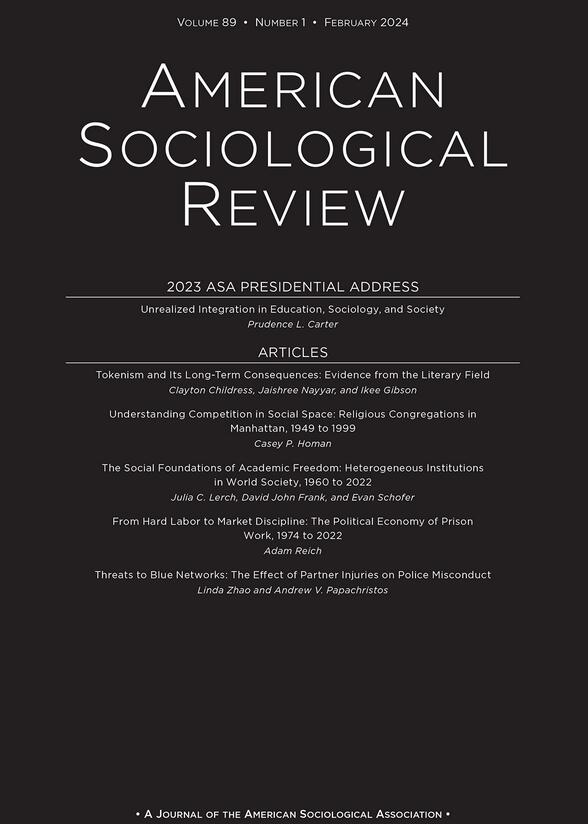文化力量的要素:新颖性、情感、地位与文化资本
IF 6.2
1区 社会学
Q1 SOCIOLOGY
引用次数: 2
摘要
为什么某些想法会流行起来?是什么让一些想法比其他想法更强大?本研究使用一个新颖的数据集,追踪中国网民在一个在线论坛上对美国政治的讨论,使用一种创新的历时词嵌入方法,研究了文化权力的关键预测因素——新颖性、情感、地位和语言特征。研究发现,新颖性与共鸣之间呈曲线关系,地位与文化权力之间呈正相关。与理论预期相反,适度的情绪,无论是积极的还是消极的,被发现比更强烈的情绪更有效地唤起共鸣,可能是由于论坛的“群体风格”的中介作用。因此,尽管对美国的极端情绪可能存在,但它们不太可能引起共鸣,至少在受过良好教育的中国网民中是这样。研究还发现了语言特征的显著影响,如词汇多样性和在汉语讨论中使用英语。这表明了一种布尔迪乌的“文化资本信号和选择”的文化权力路径,这在大多数共振研究中都没有被考虑到。本文章由计算机程序翻译,如有差异,请以英文原文为准。
The Elements of Cultural Power: Novelty, Emotion, Status, and Cultural Capital
Why do certain ideas catch on? What makes some ideas more powerful than others? Using a novel dataset that traces Chinese netizens’ discussion of U.S. politics on an online forum, this study examines key predictors of cultural power—novelty, emotion, status, and linguistic features—using an innovative diachronic word-embedding method. The study finds a curvilinear relationship between novelty and resonance, as well as a positive relationship between status and cultural power. Contrary to theoretical expectations, moderate emotions, whether positive or negative, are found to be more effective in evoking resonance than more intense emotions, possibly due to the mediating effect of the forum’s “group style.” Thus, it appears that although extreme sentiments toward the United States may exist, they are not likely to be resonant, at least among more educated Chinese netizens. The study also finds significant effects of linguistic features, such as lexical diversity and the use of English in Chinese discussions. This suggests a Bourdieusian “cultural capital signaling and selection” path to cultural power, which has not been considered in most studies of resonance.
求助全文
通过发布文献求助,成功后即可免费获取论文全文。
去求助
来源期刊

American Sociological Review
SOCIOLOGY-
CiteScore
13.30
自引率
3.30%
发文量
35
期刊介绍:
The American Sociological Association (ASA) is a non-profit membership association established in 1905. Its mission is to advance sociology as a scientific discipline and profession that serves the public good. ASA is comprised of approximately 12,000 members including faculty members, researchers, practitioners, and students in the field of sociology. Roughly 20% of the members work in government, business, or non-profit organizations.
One of ASA's primary endeavors is the publication and dissemination of important sociological research. To this end, they founded the American Sociological Review (ASR) in 1936. ASR is the flagship journal of the association and publishes original works that are of general interest and contribute to the advancement of sociology. The journal seeks to publish new theoretical developments, research results that enhance our understanding of fundamental social processes, and significant methodological innovations. ASR welcomes submissions from all areas of sociology, placing an emphasis on exceptional quality.
Aside from ASR, ASA also publishes 14 professional journals and magazines. Additionally, they organize an annual meeting that attracts over 6,000 participants. ASA's membership consists of scholars, professionals, and students dedicated to the study and application of sociology in various domains of society.
 求助内容:
求助内容: 应助结果提醒方式:
应助结果提醒方式:


